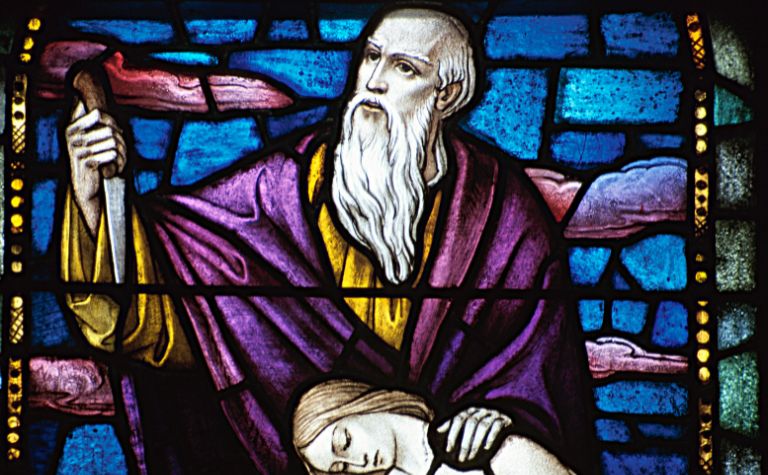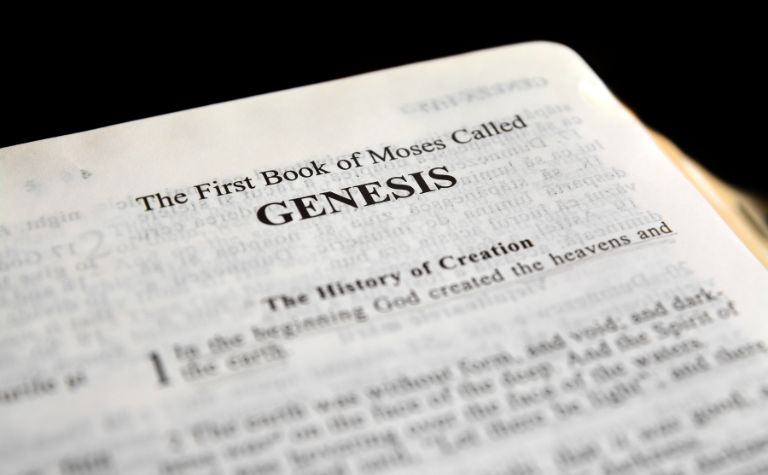Abraham was the first patriarch of the Hebrew people, later called Israelites and Jews. Bible readers know him as the recipient of God’s promise of land, nation, and blessing (Gen. 12:1-3) and as Sarah’s husband and Isaac’s father. Many people want to know what the name “Abraham” means. They also want to know when and why God changed it from Abram.
Abraham means “the father of many people.” God changed his name from Abram, meaning exalted father, when the patriarch was 99 years old. The name change occurred when God reiterated his promise to give descendants to Abraham through his wife, Sarah, starting with Isaac’s birth.
Didn’t Abram already father a child before Isaac was born? What physical challenge caused Abram and Sarah sorrow for decades? What is the Hebrew root word for “Abram” and “Abraham,” and how is it used in the Old Testament? How often is “Abram” compared to “Abraham” in the Bible? Keep reading to learn the answers to these questions and others.
Also, understanding Abraham’s lifespan gives into God’s work in his life. Learn how old Abraham was when he died to get more insight.

God Changes Abram’s Name to Abraham
Abram had been in the Promised Land for 24 years when God restated his covenant with him, including his promise to give him and Sarah children, even though they were old. God had to miraculously overcome biological norms related to reproduction to fulfill his promise.
At Sarah’s instance, Abram had already fathered Ishmael with Hagar, his wife’s servant. This circumstance caused Sarah sorrow, stress, and regret (Gen. 16). Neither Ishmael nor any son Abram might have with any woman besides Sarah would inherit God’s promises (Gen. 17:15-21).
God promised to give Abram descendants
God promised Abram that a nation would come from his line even though Sarah was passed childbearing years (Gen. 12:1-3; 18:13). Yet when Sarah didn’t get pregnant immediately, doubt and fear arose in the couple that she would always be barren (Gen. 15:1-3; 16:1-2). Did they misunderstand the covenant? Would God fulfill his promise?
The couple waited years, even decades, for God to fulfill his promise. During that time, God twice reiterated his promises to Abram in powerful and dramatic ways (Gen 15:12-20; 17:1-14). The second restatement includes several descriptions of what God was getting ready to do.
| References | Description |
|---|---|
| Gen. 17:2 | multiply you greatly |
| Gen. 17:4 | you shall be the father of a multitude of nations |
| Gen. 17:5 | the father of a multitude of nations |
| Gen. 17:6 | I will make you exceedingly fruitful |
| Gen. 17:6 | I will make you into nations |
Sarah gives birth to Isaac
In this context, God changes Abram’s name to Abraham, a description that clearly explains his new name. Genesis 17:5 reads, “No longer shall your name be called Abram, but your name shall be Abraham, for I have made you the father of a multitude of nations” (ESV).
God miraculously ended Sarah’s barrenness when she was 90 years old (Gen. 17:17). Abraham was 100 (Gen. 17:21). Despite their ages, “Sarah conceived and bore Abraham a son in his old age at the time of which God had spoken to him” and they name him Isaac (Gen. 21:2-3).
Also, Isaac’s birth was a pivotal moment in Abraham’s life. Learn how old Abraham was when Isaac was born for more understanding.

The Hebrew Meaning of Abraham
The names “Abram” and “Abraham” come from the Hebrew word for “father” and “forefather” (‘ab). Some scholars speculate that the word originated from the sound babies made referring to their father, like “papa.” [1] The word’s broader definition includes terms like ancestor, begetter, and originator.
| Part of Speech | Abram | Abraham |
|---|---|---|
| Hebrew | אַבְרָם | אַבְרָהָם |
| Transliteration | Abram | Abraham |
| Pronunciation | ab-rawm’ | ab-raw-hawm’ |
| Meaning | exalted father | father of many people |
The Hebrew root word in the name Abraham (‘ab) occurs over 1,000 times in the Old Testament. [1] Most of the time, it describes a biological father. For example, Genesis 2:24 reads, “Therefore a man shall leave his father and his mother and hold fast to his wife, and they shall become one flesh” (ESV, emphasis added).
The word (‘ab) can also describe a grandfather (e.g., Gen. 28:13), an ancestor (e.g., 1 Kings 15:11), or the founder of a people group like a tribe or nation. For example, Isaiah 51:2 uses the word this way to describe Abraham. “Look to Abraham your father and to Sarah who bore you; for he was but one when I called him, that I might bless him and multiply him” (ESV, emphasis added).
When the Bible refers to Abraham as the “father” of the Israelites, it doesn’t mean he had thousands of children. Instead, the word has the meaning of “forefather.” Abraham had eight sons: Ishmael with Hagar, Isaac with Sarah, and six sons with his second wife, Keturah (Gen. 25:1-2). However, only Isaac inherited God’s promises to Abraham (Gen. 17:21).
The Old Testament also uses the word (‘ab) to describe God’s fatherhood. For example, God says in Jeremiah, “I will make them walk by brooks of water, in a straight path in which they shall not stumble, for I am a father to Israel, and Ephraim is my firstborn” (Jer. 31:9b, ESV, emphasis added).
Also, God’s promises to Abraham are a key theme in Genesis. Discover the promises God made to Abraham to learn more.

Comparing Abram and Abraham in the Bible
Bible readers find the name “Abram” 65 times in the Bible. It occurs 63 times in Genesis between 11:26 and 17:5. After God renames the patriarch, Genesis never again uses his old name.
Bible readers only find “Abram” outside of Genesis twice in two historical books, each mentioning his new name. The passage in 1 Chronicles is a genealogy.
| 1 Chron. 1:25-27 | Eber, Peleg, Reu; Serug, Nahor, Terah; Abram, that is, Abraham |
| Nehemiah 9:7 | You are the Lord, the God who chose Abram and brought him out of Ur of the Chaldeans and gave him the name Abraham. |
Bible readers find the name “Abraham” 253 times. It occurs dozens of times from Genesis 17:5 until the end of the book. It also appears in 15 other Old Testament, including the Law, the Historical Books, the Wisdom Literature, and the Prophets.
Although the New Testament doesn’t include the name “Abram,” it refers to “Abraham” dozens of times. Among the four Gospels, Luke mentions Abraham the most. However, Paul refers to the patriarch more than any other New Testament writer.
Also, Abraham’s death is an important event in Genesis. Because of this, many readers want to know where Abraham is buried. See the article to learn more.
References:
[1] Theological Wordbook of the Old Testament. p. 5.
[2] NIV Exhaustive Concordance. p. 8-9.
Related Questions
The story of Noah, the flood, and the ark is one of the most iconic narratives in the Bible. Not only does the magnitude of the floodwaters leave readers awe-struck, but so does the faith that Noah...
Adam and Eve are the first humans God created. Readers know the pair as the first man and woman, and as the first people to rebel against God, which they did in the Garden of Eden. Did Adam and Eve...
